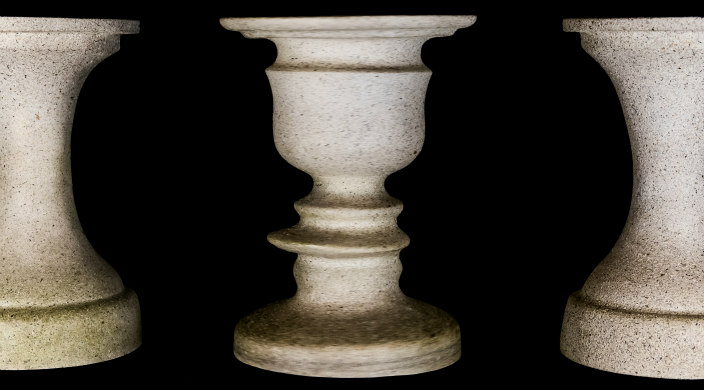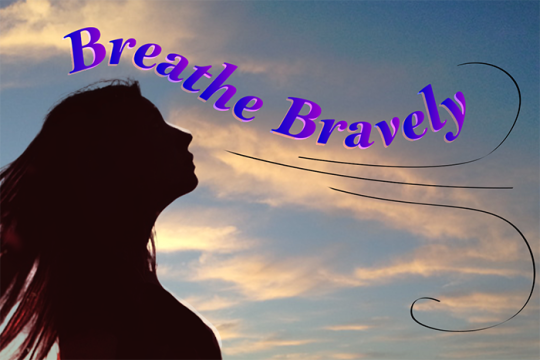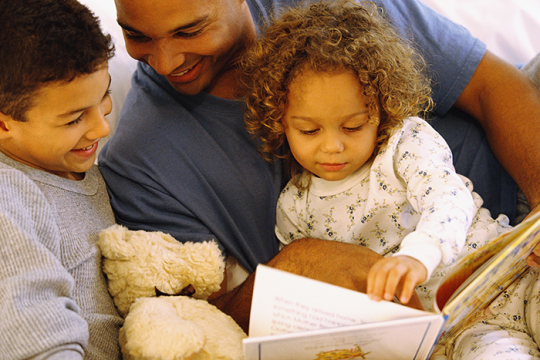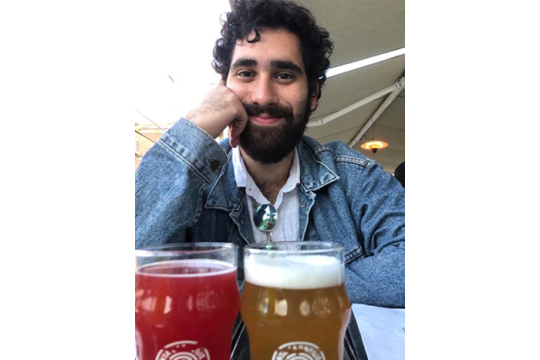
Our realities are, to a degree, relative. On one hand, this is a great thing: Our varying perceptions of the world around us allow us to bring our unique viewpoints to our jobs, our communities, and our synagogues, allowing our collaborative projects to be grounded in diversity. On the other hand, we can become biased by our own perceptions and disregard those of others.
Whether it’s due to differing life experiences, our areas of privilege, or simply differences of opinion, our perceptions can sometimes prevent us from fully acknowledging the complex identities of others within our communities.
I recently had the joy of watching Blindspotting, the critically acclaimed 2018 film directed by Carlos Lopez Estrada, written by and starring Tony Award-winner Daveed Diggs (who starred in Hamilton and is a Jew of Color) and Rafael Casal. Set in Oakland, CA, the film follows the lives of two best friends, Collin (Diggs) and Miles (Casal) dealing with the rapid gentrification of their hometown while trying to create better situations for themselves and their families.
The film itself is fantastic, but one moment in particular stood out: Collin’s ex-girlfriend Val (Janina Gavankar) creates the mnemonic device “blindspotting” to remember Rubin’s Vase, an optical illusion in which the viewer sees either a vase or two faces, but never both at first glance (visual “blind spots”). Seeing both at the same time, Val explains, is possible, but it takes a lot of effort.
This film reminded me that this visual phenomenon is also an unfortunate reality of our daily lives. We are all guilty of blindspotting, of only seeing parts of others’ identities and experiences while ignoring the others. Even when we trick our brains into seeing the other sides of those we know and love and interact with, it takes a great amount of effort to see all of them at the same time.
Watching this movie was a reminder of the times I, like many other Jews on the margins, have been on the receiving end of others’ blindspotting.
When a Jew of Color enters Jewish spaces, whether it’s for the first or fiftieth time, many white Jews fail to see their Jewishness while focusing only on their skin color. The same is true of other marginalized identities: Cisgender Jews focus on others’ gender identities; able-bodied Jews focus on others’ disability, and so on.
This has happened to me more times than I can recall. Whenever I’ve entered Jewish spaces, my blackness has been the first thing many people noticed – and in some cases, it was the only thing. I was harshly reminded of this when I walked into a synagogue I’d never attended, and the older white woman I sat next to pointed to my siddur (prayer book) and said, “We read right to left here.”
This woman had blind spots to my years of attending Shabbat services and Passover seders; to the considerable amount of time I spent on my Introduction to Judaism class; to the fact that I learned this very tidbit about siddurim 10 years earlier, when I first learned about Jewish prayer as a teenager. She even had a visual blind spot to the kippah on my head! Instead, she looked at me and saw somebody ignorant about Judaism, and it stung.
But this movie also compelled me to examine my own blind spots.
There have been times when I’ve unintentionally noticed somebody’s gender, sexual orientation, or disability without noticing other, equally important areas of their identity. Like the well-intentioned woman next to me in synagogue, this was never due to malice or hatred, but because of my own ignorance, my limited perception of the world around me. As a cisgender person, I have blind spots to the everyday experiences of transgender people; as an able-bodied person, I have a limited understanding of those with disabilities; as a man, I have plenty of blind spots to the female experience.
In all these cases and more, the best we can do is to recondition ourselves to noticing the other sides of others’ identities first and – with enough work – at the same time.
We Jews have a history of being blindspotted by others, having our Jewishness noticed and not the other beautiful parts of our lives – and it’s a condition that we ourselves are not immune to projecting onto others. But when we put in the effort to change the way we perceive others, to see them for the entirety of who they are, we become liberated, we become better allies, and we can more easily do our parts to repair the world around us.
Related Posts

Breathe Bravely

The Importance of Storytelling

